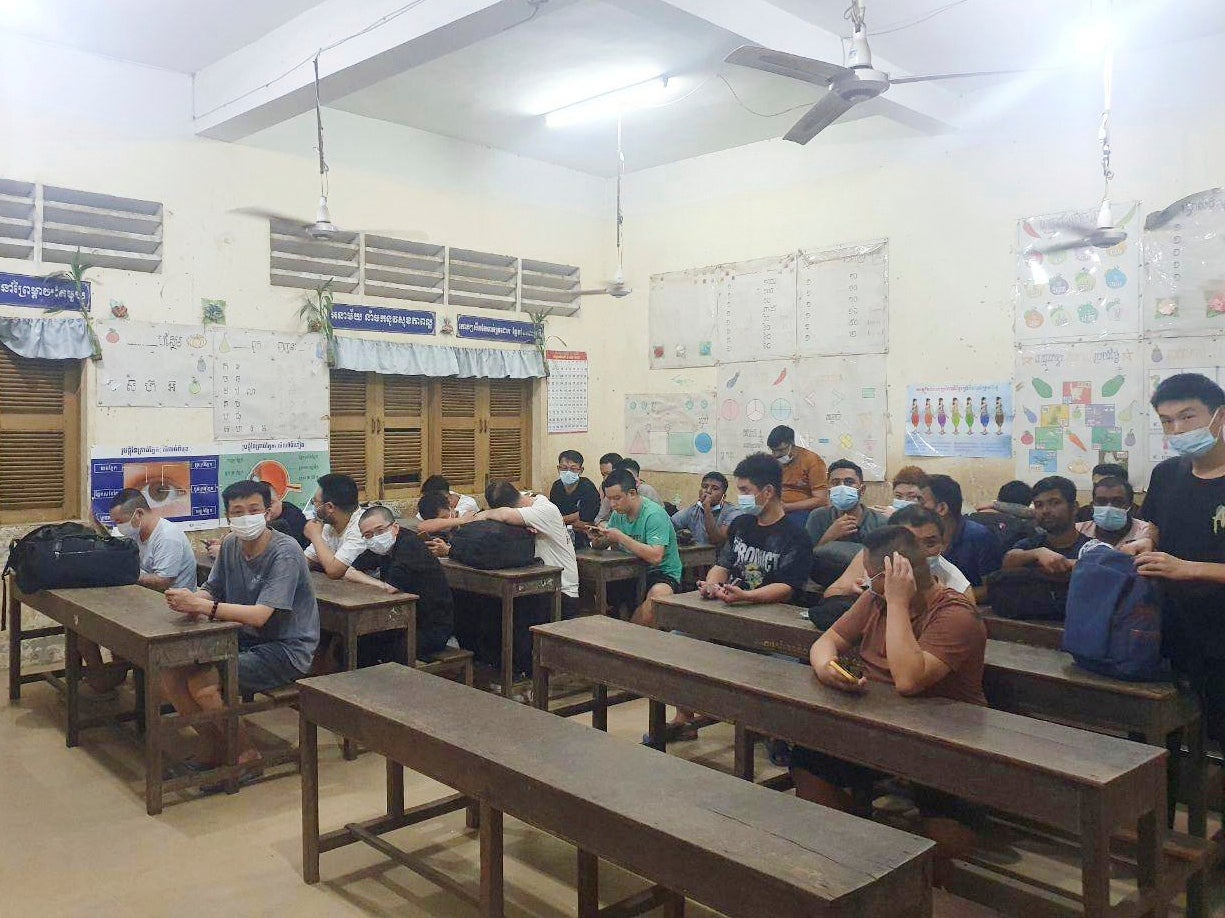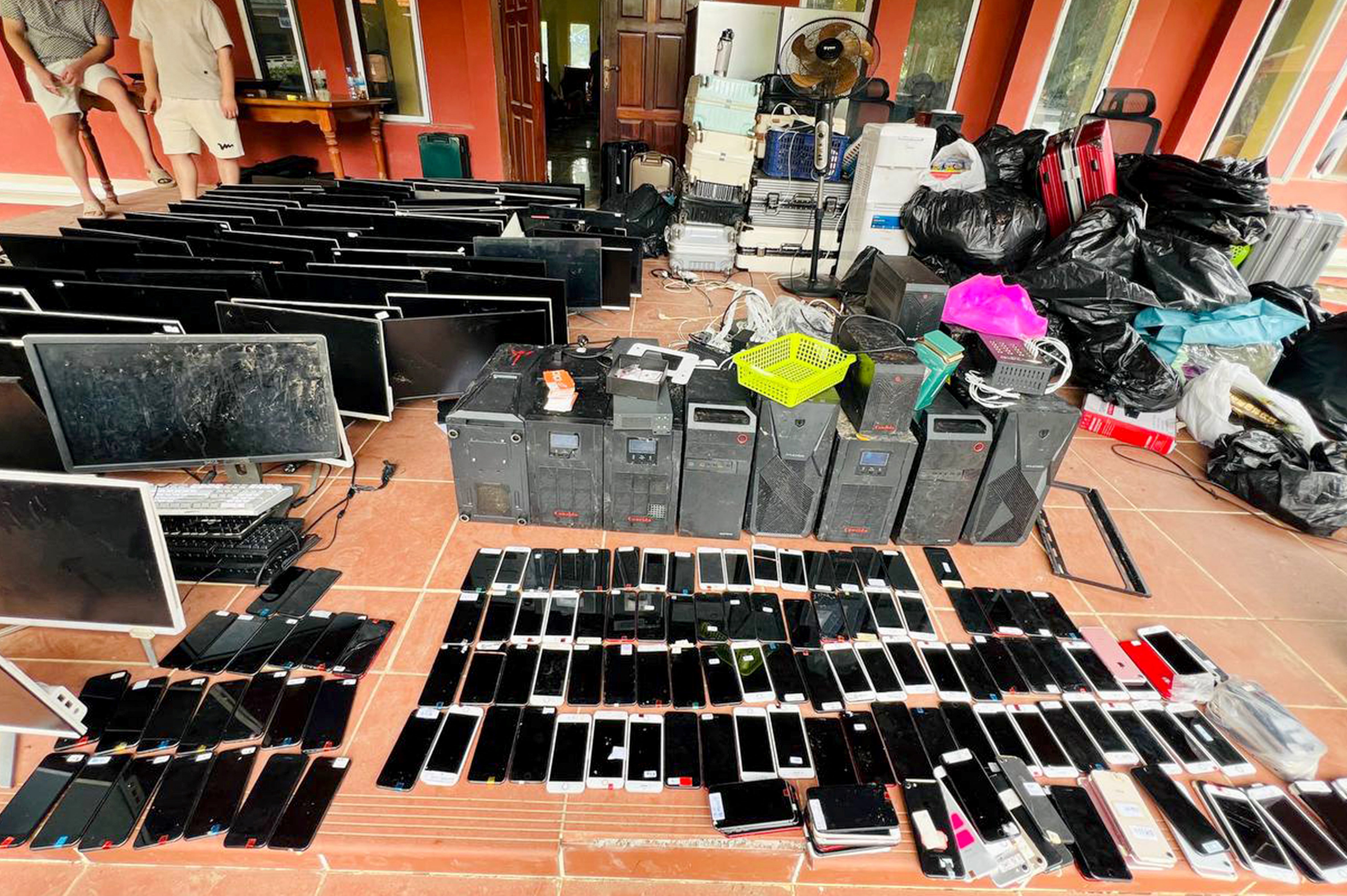South Korea summoned the Cambodian envoy to express concern after a Korean college student was kidnapped and brutally tortured to death in a case that threatened to spark a diplomatic row between the two countries.
Police in South Korea said on Sunday they planned to conduct a joint autopsy with Cambodian authorities on the 22-year-old student from North Gyeongsang Province in South Korea who was found dead in Cambodia in August after being lured by a fake job offer. He had entered the country on 17 July and died of cardiac arrest caused by torture two weeks later.
His family said they received a phone call from Cambodia a week after his departure, with the callers demanding a ransom of 50 million won ($38,500) and claiming the student “had caused trouble” and had been detained.
The incident, linked to an employment scam and organised crime, sparked outrage in South Korea and highlighted a rise in kidnappings targeting Korean nationals in the country.
On Friday, South Korean foreign minister Cho Hyun summoned the Cambodian ambassador, Khuon Phon Rattanak, to express concern over the brutal death of the student. He called on the Cambodian government to cooperate fully with South Korean authorities and to take stronger measures against such scams.
It was a rare diplomatic move, as Seoul seldom summons ambassadors from other nations.

The Korean National Police Agency (KNPA) said in a statement that South Korean police and the National Forensic Service are working with Cambodian authorities on the possibility of conducting a joint autopsy of the student’s remains.
Officials from the KNPA and the Gyeongbuk Provincial Police Agency plan to travel to Cambodia once the schedule is finalised with local authorities, Yonhap reported.
“The repatriation process will proceed after conducting an autopsy in accordance with intergovernmental procedures,” said Ahn Jung-man, a senior official at the Gyeongbuk Provincial Police Agency. “We will focus on determining the exact cause of death and identifying those responsible for the crime.”
The student left his home in Yecheon after telling his family he was travelling to Cambodia to attend an exhibition.
It was later revealed that he may have been lured by “money mule” recruiters in South Korea, who tricked him into selling his bank account for fraudulent activities and convinced him to travel abroad for a supposed job opportunity in information technology or related fields.

A week later, his family received a threatening phone call from a man speaking Korean with a Chinese-Korean accent. The caller demanded a ransom, according to the police.
The family immediately reported the incident to the South Korean Embassy in Cambodia and to local police, but the student’s location could not be traced. The caller cut off contact after four days.
On 8 August, the student’s body was discovered inside a black car near Bokor Mountain in Kampot Province, southern Cambodia – a region notorious for employment scams and forced labour in online fraud centres, often referred to as “pig butchering” scams, which frequently target foreigners, particularly South Koreans.
Cambodian authorities and the South Korean Embassy confirmed the cause of death as cardiac arrest resulting from severe torture.
The National Police Agency also said it will hold a meeting with its Cambodian counterpart later this month to discuss measures to prevent similar incidents.
The talks are scheduled for 23 October, and NPA Commissioner General Park Sung-joo is reportedly considering a visit to Cambodia to assess the situation on the ground and enhance cooperation with local authorities.
To prevent such incidents, the agency said it also plans to strengthen international coordination by conducting joint cross-border operations with organisations such as Interpol and deploying an additional 30 officers to oversee overseas investigations.

.jpeg)




















.jpeg)













 English (US) ·
English (US) ·